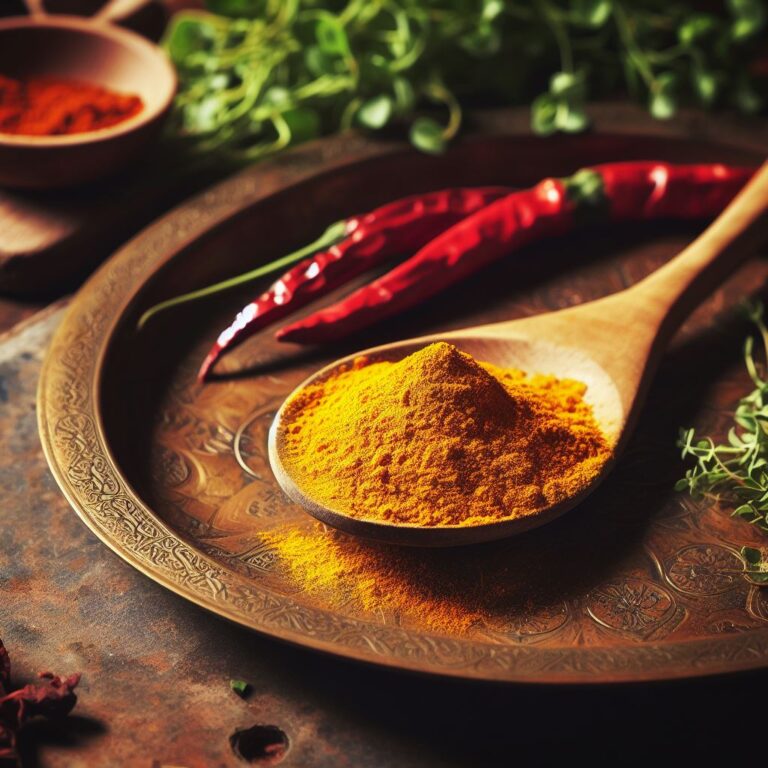Why is there so much misinformation about this amazing herb and its health benefits?
When it comes to health and natural remedies, turmeric is linked to a lot of terms that can leave you more confused than informed.
What is the difference between Turmeric, Curcuma, Curcumin, Curcuminoids, and Turmeric Extract? People who are determined to use this amazing plant to its fullest often don’t understand this question.
There are so many terms that it’s hard to tell what they really mean and how they differ from each other. We’re going to clear things up for them in this post.
Clarity is very important for people who want to improve their health with this golden spice.

You’re somehow familiar with turmeric, but are you ready for these 5 astonishing facts about it?
#1 – Turmeric is perhaps the most researched dietary supplement in modern science.
#2 – There are over 6,000 clinical studies proving turmeric to be maybe the number one healing herb available today
#3- It’s been found to be probably more beneficial than at least 20 different medications out there.
#4 -According to over 50 years of research, turmeric can help with almost every health issue and greatly improve life quality and longevity!
#5-Besides being a spice, turmeric is employed in 3,000-year-old Indian Ayurvedic medicine, which focuses on whole-person health.
Every month it seems like we learn about a new way turmeric might be good for your health.
The Most Effective Supplement
In fact, turmeric might be the most effective supplement you can currently take for your overall health.
And the amazing thing about turmeric is that it has virtually no side effects.
There’s been no deaths, no serious side effects. Maybe some slight digestive problems if you have too much, but even at high doses, there’s no major serious side effects like there are with medications.
Before you rush to the store for your turmeric supply, pause and learn the distinctions between turmeric, turmeric extract, curcuma, and curcumin. This knowledge is the key to experiencing its comprehensive benefits.
What is Turmeric?
Turmeric,Turmeric Extract, Turmeric Supplements, Curcuma, Curcumin, Curcuminoides -Are all the same ?
Quick answer – NO !
As you explore the web for information about turmeric, you’ll come across related terms like curcumin, curcuma, curcuminoids, turmeric extract and turmeric supplements.
It’s essential to distinguish these terms to grasp their unique meanings, uses, and how they relate to your health.
Let’s start by Turmeric
Turmeric is the root of Curcuma Longa, a flowering plant of the ginger family.
This is why some use Curcuma and Turmeric interchangeably.

Turmeric is often sold in spice jars,however, if bought fresh, it looks similar to ginger root with a more intense yellow to golden color..
Turmeric, found in Asian cuisines is the key ingredient in curry powder.

The most common and easy way to find Turmeric is in its ground powder form sold in groceries stores.

Why is turmeric becoming more and more popular with people who care about their health?
In the ever-growing world of natural remedies, turmeric, the age-old orange root, takes the spotlight.
Turmeric is a plant that has a very long history of medicinal use, dating back nearly 4000 years, and now, with the aid of modern science, we are unearthing even more and more about the extraordinary health benefits of turmeric in treating various ailments, including cancer.
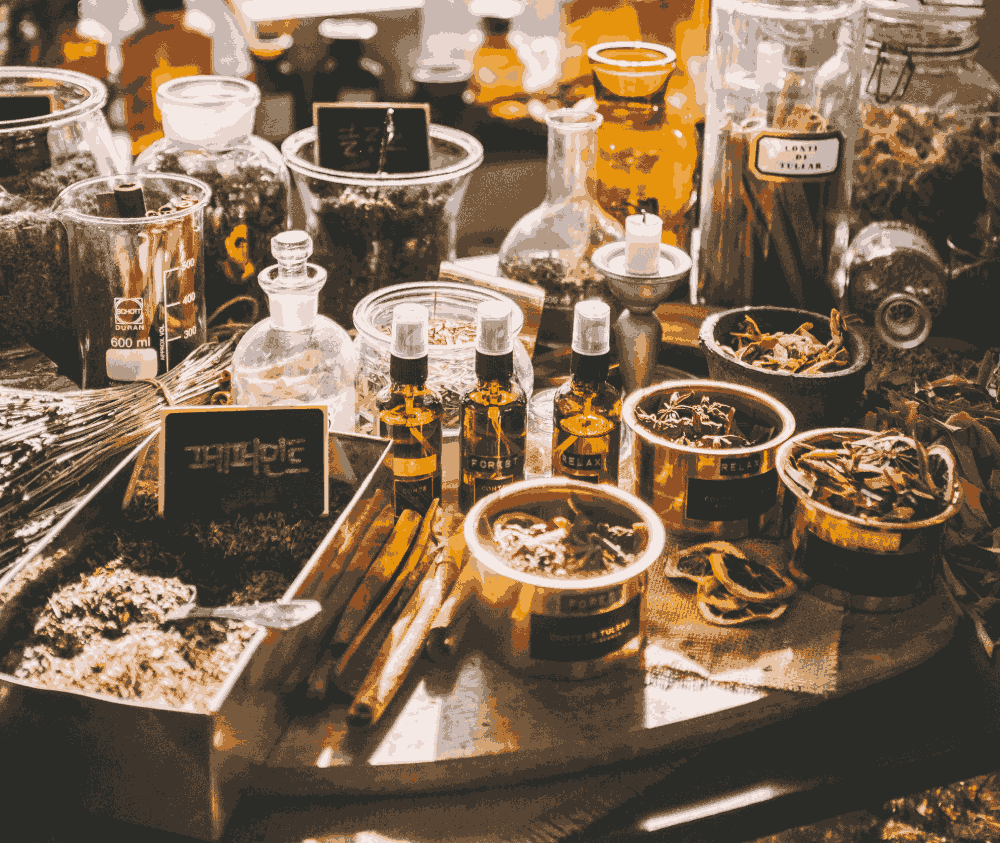
Curcumin
What does curcumin have to do with turmeric?
Curcumin is just one of many substances found in turmeric.
In fact, the most active, health-beneficial and studied plant substance in turmeric.

For this reason, some people also refer to turmeric as curcumin, however they are not the same.
This difference might not seem like a big deal, but it is important when talking about health benefits and dosing, especially when trying to use the studied or researched amounts of curcumin as a guide to get the similar health benefits.
See the curcumin content in different turmeric forms: fresh turmeric root contains 2% to 3%of curcumin, dried turmeric powder has 2% to 6% of curcumin, and turmeric extract capsules boost 90% to 95% curcumin.
For example, a typical serving of turmeric powder contains only about 20 milligrams of curcumin. On the other hand, you have the option to purchase capsules loaded with 500-2,000 milligrams of curcumin for a more concentrated dose.
Turmeric Supplements and Extracts
First, a turmeric supplement is a concentrated form of turmeric that is typically available in various forms such as capsules, tablets, or powders.
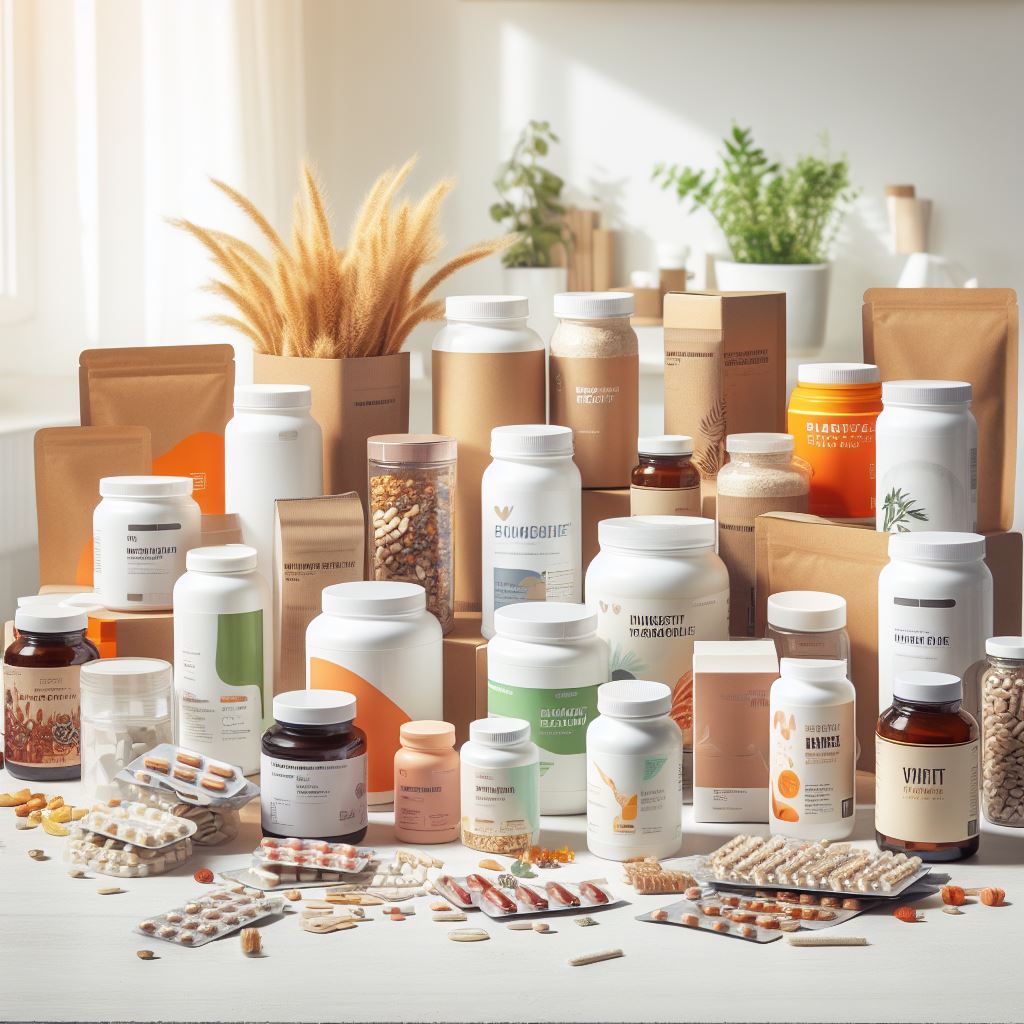
Turmeric supplements are designed to provide a specific and controlled dosage of curcumin, the active compound in turmeric, which is known for its potential health benefits.
In fact to be more accurate, curcumin is the most studied and researched member of a family known as curcuminoides, which includes the curcumin itself and 2 other related substances- demethoxycurcumin and bisdemethoxycurcumin.
Researchers clearly differentiate between curcumin and curcuminoids but the pharma industry for simplicity sake calls all curcuminoids as curcumin.
When buying these turmeric supplements one will notice most use in their labels something like turmeric curcumin with 95% standardized curcuminoids, as below:

What all this means?
Is important to note that all benefits published in hundreds of scientific and technical papers and clinical trials as mentioned later in this post , were obtained using the extract form of curcumin (95% standardized curcuminoids).
“95% standardized curcuminoids” refers to the concentration of curcuminoids in the turmeric extract. In simple terms, it implies that 95% of the content consists of curcuminoids.
Being very exact, the average percentage of curcumin within curcuminoids is around 70-85%.
Considering the label above, in 150mg of turmeric there is 95% of curcuminoids (142,5mg), in which an average of 70-85% are curcumin ( 99,75mg – 121,13mg).
This standardized concentration guarantees a potent and consistent level of curcumin in the extract, which is often employed in various research studies, clinical trials, and scientific papers.
This ensures that the benefits attributed to curcumin have been predominantly associated with this concentrated form.
With this comprehensive information, you’re better equipped to make informed decisions when selecting your next turmeric supplement.
Finding Out About the Health Benefits of Turmeric: The Power of Curcumin
Are you interested in what makes turmeric, or more specifically, curcumin, such a powerful health aid?
The answer is based on two main factors: curcumin is a very potent antioxidant and a very potent anti-inflammatory !
Both antioxidants and anti-inflammatories can play a role in both prevention and treatment of diseases.
The specific role of each will depend on the particular disease and the individual patient.
What benefits curcumin can bring to your health being such a powerful antioxidant ?
Curcumin’s exceptional strength lies in its role as a very potent antioxidant, effectively mitigating the damage inflicted by our contemporary way of life, including processed foods, air pollution, and the stressors we face daily.
Antioxidants like curcumin are substances that help neutralize harmful molecules called free radicals in the body.
Free radicals act slowly destroying your health as termites destroy a house.
Have you ever wondered how termites can destroy a house from the inside out?

Just like termites eat away at the wood, making the house weak and unstable, free radicals can attack the cells in our body.
They do this by taking away important parts of our cells, just like termites take away pieces of wood from the house. Over time, this can lead to big problems, causing inflammation, aging, and diseases, just like a house can collapse if too many termites damage it.
Here is why antioxidants are so important for our good health.They work to stop the free radicals, or ‘termites’, from causing harm.
So eating healthy foods rich in antioxidants is like giving our house a good coat of anti-termite spray supporting our good health and assuring us longevity!
Free radicals are a kind of famous word in these times of processed foods, pollutants, stress, and other factors that will increase its production in our body.
Next time you hear about free radicals , remember they are linked to some of important and most killing diseases in the world including :
Heart and Cardiovascular System: Free radicals can increase the risk of coronary heart disease.
Eyes: Free radicals can cause deterioration of the eye lens, which contributes to vision loss and cataracts.
Joints: Inflammation of the joints, such as in rheumatoid arthritis, can be linked to free radical damage.
Brain: Neurodegenerative diseases like Alzheimer’s and Parkinson’s disease have been connected to free radical damage.
Skin: Aging skin, including wrinkles and sun spots, can be a result of free radical damage3.
Cells: Free radicals can damage DNA, sometimes causing mutations that can increase your risk of getting health conditions like cancer.
Overweight: In the context of overweight and obesity, studies have found that free radicals are at the heart of increased appetite in diet-induced obesity.
Aging:Free radicals are highly reactive molecules that can cause damage to cells and tissues, contributing to various health issues and accelerating the aging process.
Antioxidant curcumin fights free radicals to protect your body.
In today’s challenging world, antioxidant-rich foods like curcumin can improve health and increase lifespan.
Turmeric should be on your shelf if you want to live longer and healthier!
What benefits curcumin can bring to your health being such a powerful anti-inflammatory ?
As an anti-inflammatory substance , curcumin helps reduce inflammation in the body.
Inflammation is like the body’s alarm system. It’s a natural and important defense mechanism that helps us heal from injuries and fight off infections.

However, in our modern lives, we are exposed to things like air pollution, processed foods, and a lot of stress.
These factors can also trigger inflammation in our bodies, but this time it’s not the good kind of inflammation. It’s more like a false alarm.
This ongoing, less noticeable and low-level inflammation ( also known as chronicle inflammation) , which is not a response to an injury or infection, seems like an invisible enemy can be very harmful !.
Early symptoms of chronic inflammation may be vague, with subtle signs and symptoms that may go undetected for a long period.
You may just feel slightly fatigued, or even normal. As inflammation progresses, however, it begins to damage your arteries, organs and joints.
Left unchecked, it can contribute to chronic diseases, such as heart disease, blood vessel disease, diabetes, obesity, cancer, Alzheimer’s disease and other conditions.
Learn about how turmeric can help reduce inflammation and get rid of your pain.
Are you sick of being in pain in your muscles or joints all the time?
Pain drugs, also known as NSAIDs, like Motrin, Aleve, and Excedrin, can cause side effects. Are you one of those people?
Curcumin’s ability to reduce inflammation could make a big difference for you.

Curcumin’s ability to reduce inflammation will help many people who have long-term joint or muscle pain, such as :
Adults Over 65: Joints and muscles can get worn out over time, which can lead to long-term pain conditions like osteoarthritis or degenerative disc disease.
Athletics: People who do high-impact or repetitive activities may have long-term joint or muscle pain from overuse injuries or sports-related diseases like bursitis or tendonitis.
People who have arthritis: Arthritis is a common reason why joints hurt all the time. Joint pain and stiffness that don’t go away can be caused by diseases like rheumatoid arthritis, osteoarthritis, and psoriatic arthritis.
People who have autoimmune diseases: Our immune systems fight our own tissues in autoimmune diseases like lupus, fibromyalgia, and ankylosing spondylitis, which can cause long-lasting pain in our muscles and joints.
People who have inflammatory conditions: People who have gout, tendinitis, or polymyalgia rheumatica may have persistent joint or muscle pain because of inflammation in those areas.
People who are overweight or obese: Carrying extra weight can put extra stress on joints, causing long-lasting joint pain, especially in weight-bearing areas like the knees and hips.
Cancer is one of the most studied ways that turmeric curcumin is used.
Curcumin can stop tumors from growing, spreading, and metastasizing.
Over the last 50 years, a lot of study has shown that it can both prevent and treat cancer.
Curcumin has many serious fans in the fight to beat cancer – Professors at UCLA, the MD Anderson Cancer Center, the Emory School of Medicine and Tufts to name but four important American Cancer Centers.
Curcumin is the anti-cancer substance that has been studied the most, and every month there are new studies.
One way it can be used is as an alternative cancer treatment, or it can be used along with other treatments.
It keeps good cells from getting hurt by chemotherapy, but it kills cancer cells and makes many chemotherapy drugs work better.
If you want to make a plan to fight cancer, you should really think about adding at least a gram of curcumin every day.
A lot of study is being done on a lot of different types of cancer, both directly attacking the cancer and stopping a lot of the processes that cause cancer, such as stopping angiogenesis, which is what brings blood to the cancer.

This research also focuses on countering some of the mechanisms that cancer and tumor cells use to suppress your immune system, so it actually helps your cells prevent the cancer cell from surviving.
There are a dozen or more studies where curcumin has caused cell death in cancer cells; and even more where it prevents tumors forming a blood supply.
So is curcumin a cure for cancer?
Considering the wealth of research spanning over 50 years, it becomes evident that overlooking curcumin as a component of an Integrative or holistic cancer treatment program would be unwise.
Turmeric protects you from the leading cause of death worldwide – heart diseases !
Turmeric protects your heart and circulatory system.
The heart and circulatory system are one of the most critical systems of the body because they help to circulate oxygen throughout your entire body.
If you have heart disease or are at risk of heart disease, you should consider adding turmeric to your diet.

A study published in the Journal of Nutrition found that when people took turmeric and curcumin, they lowered their blood pressure and improved their heart function.
Curcumin, the active ingredient in turmeric, helps to relax the blood vessels so that they don’t constrict as much.
It also improves your heart’s ability to pump blood.
It lowers your risk of heart disease.
Heart disease is the leading cause of death worldwide, and it is influenced by many factors such as cholesterol, blood pressure, blood sugar, and inflammation.
Turmeric curcumin can help improve all these risk factors by modulating the lipid profile, lowering blood pressure, improving insulin sensitivity, and preventing blood clots.
In a study of patients with coronary artery disease, the researchers found that taking 4 grams of curcumin a day for eight weeks reduced their total cholesterol, LDL cholesterol, and triglyceride levels.
Also, the group who took curcumin had lower levels of C-reactive protein, which is a marker of inflammation.
Turmeric Has Potent Healthy Effects For Your Brain And Nervous System.
It’s been tested to show significant improvements on Alzheimer’s, Parkinson’s, and other neurodegenerative disorders.
It’s also been shown to decrease the formation of plaquing in the brain.
It has very potent cardiovascular effects and helps in lowering blood pressure, decreasing lipids, helping slow down the formation of plaquing in arterial sclerosis and clogged arteries.

It Strengthens Memory and Prevents Alzheimer’s Disease
Regular consumption of curcumin is an effective way to improve memory and prevent Alzheimer’s disease as it contributes to removing deposits resulting from the accumulation of beta amyloid protein between brain cells that cause Alzheimer’s disease and impair memory.
Curcumin Also Boosts Cognitive Function In Older Adults.
It has also been used to treat epilepsy, depression, anxiety, and suicidal thinking.
Curcumin is a powerful antioxidant that protects the brain from damage caused by free radicals, as mentioned earlier.
It improves the brain’s functioning by improving blood flow and oxygen supply to the brain.
This feature of curcumin is significant because it allows the brain cells to function better and protects against degenerative diseases.
Curcumin: Your One-Stop Solution to Sugar Levels, High Cholesterol, Diabetes, Obesity, Cortisol, and Stress
A well-functioning endocrine system underlies some of the most prevalent health conditions in modern life, including cholesterol regulation, blood sugar levels, diabetes, obesity, cortisol secretion, and stress management.
It is scientifically supported to state that modern lifestyles that involve excessive consumption of unhealthy foods, reduced physical activity, and chronic stress can contribute significantly to unbalancing our endocrine system.

Turmeric curcumin can benefit the endocrine system by exhibiting anti-inflammatory and antioxidant properties, which may help reduce inflammation, support hormone regulation, and promote overall endocrine health.
Curcumin can make insulin more sensitive.In simple terms, curcumin is like a helper for insulin.

It makes insulin work better in your body. When insulin is more sensitive, it can control your blood sugar more effectively.
This can be good for people who have issues with their blood sugar levels, helping pre-diabetics and diabetics manage their condition.
Studies have shown that curcumin can help prevent pre-diabetics from developing diabetes and reduce complications in diabetics.
Several Studies Have Shown That Curcumin Can Help Maintain Average Body Weight And Assist People In Losing Weight.
The active ingredient, curcumin, slows down the breakdown of carbohydrates and fats, which is a critical factor in weight gain.
Researchers found that people who took a supplement of curcumin for 12 weeks lost more weight than those who took a placebo.
These studies also showed that curcumin could help reduce insulin resistance, an essential factor in obesity.
In addition to its benefits for the endocrine system, curcumin can also improve the performance of the cardiovascular system.
Turmeric Curcumin: A Powerful Shield For Liver Health
Turmeric Curcumin has garnered scientific recognition for its remarkable ability to safeguard the liver against fat accumulation and fibrosis.
These conditions often arise as a consequence of liver inflammation, and turmeric’s potent anti-inflammatory properties play a crucial role in counteracting these adverse effects.
With its proven efficacy, turmeric curcumin serves as a valuable natural ally in promoting liver health and supporting the detoxification process.
Turmeric Curcumin Is A Natural Infection Fighter And Skin Health Support
Turmeric Curcumin is a powerful anti-microbial, antiviral, antibacterial, anti-candida, anti-fungal, antiparasitic, anti-h pylori, so it’s great to take if someone had an infection.
It shows great benefits to dermatitis and many other skin problems as psoriasis.
Presently, a considerable number of women incorporate turmeric as a facial treatment.

This practice involves the preparation of a face mask by combining a small quantity of turmeric with raw honey, which is then applied to the face and subsequently rinsed off after approximately five minutes.
Additionally, the utilization of certain essential oils, such as frankincense, proves to be highly beneficial in this context.
After application and subsequent removal, these treatments display remarkable antimicrobial properties, particularly in combating acne-causing bacteria.
The Surprising Link Between Turmeric Curcumin, Gut Health, and Your Overall Well-Being
Although you might think that gut health mainly affects digestion, scientists are discovering that the gut microbiome actually impacts your overall health.
The gut microbiome includes bacteria, microorganisms, fungi, and viruses that are present in the gastrointestinal tract. It plays a role in absorption of key nutrients and minerals.

The gut microbiome also plays a key role in good health — and in disease progression.
The greater the diversity that exists in the gut microbiome, the better it is for your health.
When you have an imbalance of gut microbes, it can lead to conditions like obesity, which may be due in part to an unhealthy microbiome and poor gut health.
In addition, imbalance of gut microbes can lead to number of chronic conditions, including inflammatory bowel disease (IBD), irritable bowel syndrome (IBS), type 1 and type 2 diabetes, rheumatoid arthritis, asthma, eczema, chronic kidney disease, and liver disease, according to a scientific review published in the European Journal of Clinical Nutrition in September 2021.
Studies suggest that curcumin may act as a prebiotic, nourishing beneficial gut bacteria and inhibiting the growth of harmful pathogens.
Turmeric Curcumin increases your healthy bacterias concentration of, for example, bifidobacteria and lactobacilli inside your gut.
At the same time it reduces the concentration of the bad gut microbiome bacteria, things such as chorio bacteria, enterobacteria, and enterococci.
Overall turmeric and curcumin tends to increase bacterial species richness of the gut microbiome.
“Seeing the Light: How Curcumin Enhances Eye Health”
Curcumin helps combat oxidative stress, a process that can lead to age-related macular degeneration and other eye disorders.
By neutralizing free radicals and reducing inflammation, turmeric can help prevent damage to the cells in your eyes and slow down the progression of conditions like cataracts.

Turmeric’s anti-inflammatory effects play a crucial role in minimizing the risk of chronic eye diseases.
Inflammation is also often associated with eye disorders, such as uveitis, conjunctivitis, and dry eye syndrome.
Turmeric curcumin can help alleviate these symptoms, providing relief and promoting a healthier ocular environment.
Turmeric may support overall vision and visual acuity. Its antioxidant properties help protect the delicate tissues in the eyes, including the retina, from damage caused by environmental stressors and aging.
Regular consumption of turmeric may also help maintain proper blood circulation to the eyes, ensuring that essential nutrients reach the ocular tissues.
Which turmeric curcumin is best—raw, powder, or supplements? How do I choose?
The form of turmeric curcumin one chooses to take may depend on their individual needs and goals.
Turmeric curcumin is available in several forms, including as a raw/root, ground powder, or supplement. Each form has its own benefits and may be more suitable for certain individuals or conditions.
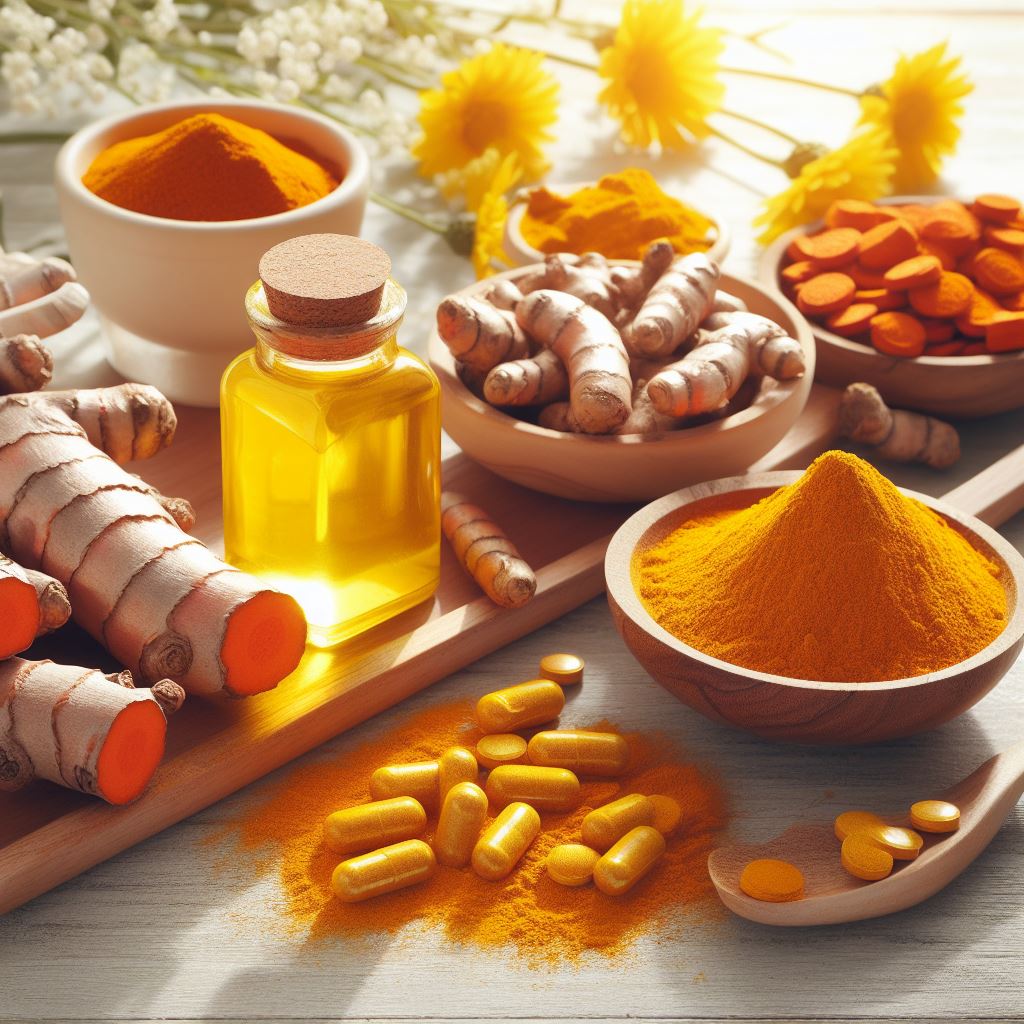
It’s essential to acknowledge that turmeric, particularly its active compound curcumin, is not well absorbed by the body.
Curcumin’s poor solubility in water and rapid metabolism in the liver and intestinal walls lead to limited absorption, causing a significant portion to pass through the digestive system without being effectively absorbed.
To enhance the bioavailability of turmeric curcumin, the most common strategy involves taking turmeric with black pepper,as its compound called piperine enhances by up to 2000% the absorption of curcumin by the body.
Even the supplement form of turmeric curcumin includes piperine ( or other substances to enhance its bioavailability ) in their formulation.
While olive and coconut oils do contribute to increased absorption of curcumin by the body, they are typically not as potent as piperine.
Don´t forget to take your raw or ground turmeric with black pepper !

As mentioned earlier, It’s important to note that the concentration of curcumin in fresh turmeric root and powder may be lower than in turmeric curcumin supplements, which are more concentrated forms of curcumin.
However, consuming fresh turmeric root and ground powder may provide other beneficial compounds that are not present in concentrated forms of curcumin.
Overall, turmeric is a spice that contains many beneficial compounds besides curcumin, as phytonutrients,turmeric oil,manganese, Iron and Vitamin B6.
These compounds have been shown to also have anti-inflammatory, antioxidant, and antimicrobial effects, and may help protect the body from a variety of medical conditions.
Using Turmeric If You Are Not Diagnosed
If you are not diagnosed with any disease and are interested in pursuing a preventive approach to a healthier lifestyle through herbal medicine, consuming the whole turmeric root and ground powder can be a beneficial option.
As a reference to you, a study published in the Journal of the Society of Arts found that rates of cancer, heart disease, and Alzheimer’s disease are lower in India than in the United States, where the average daily consumption of turmeric is something around 15 times more.
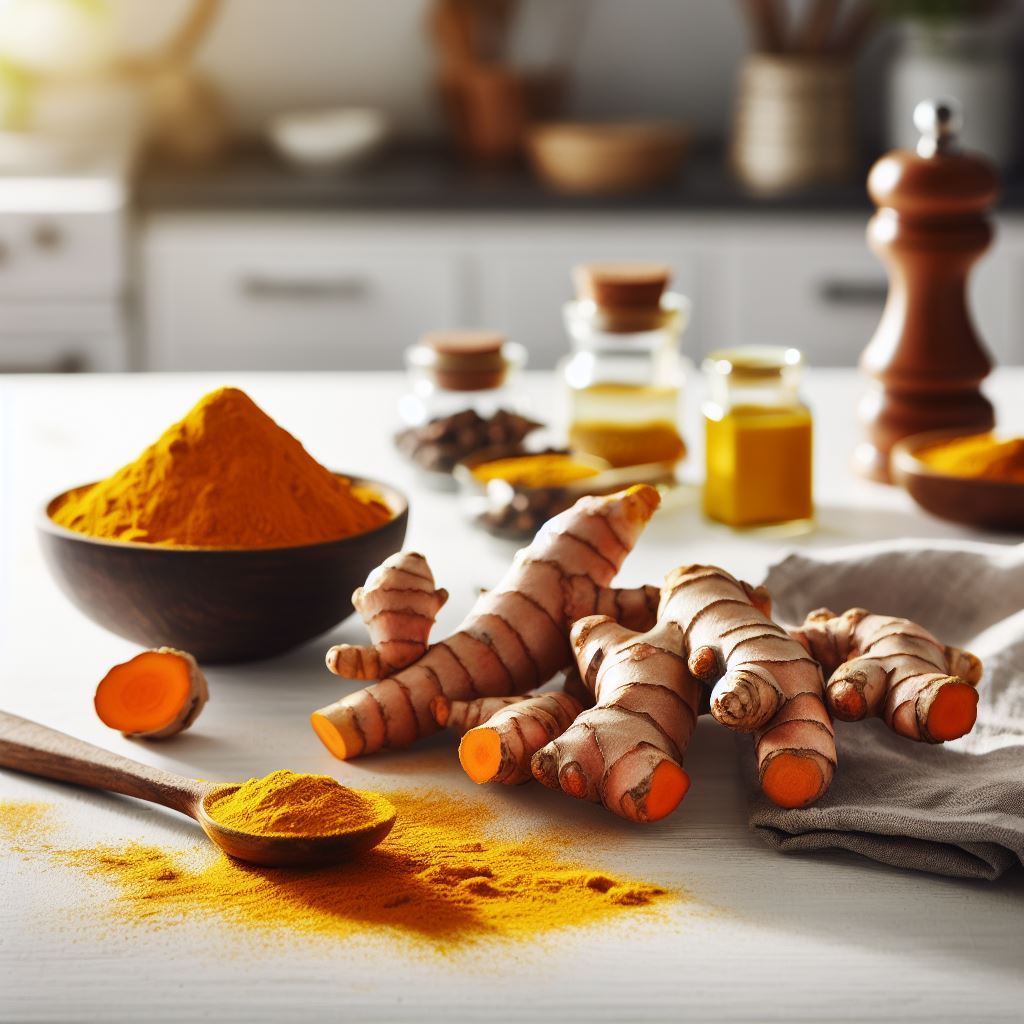
Turmeric root can be grated or sliced and added to dishes for flavor and nutrition.
Turmeric ground powder can also be used in cooking or added to smoothies or other beverages.
Consuming turmeric in these forms allows one to enjoy the many health benefits of this spice while also adding flavor and nutrition to their meals.
Using Turmeric Curcumin If One Has A Specific Diagnosed Illness Or Condition
On the other hand, if one has a specific diagnosed illness or condition, taking turmeric in supplement form ( capsules or tablets) may be more efficient.
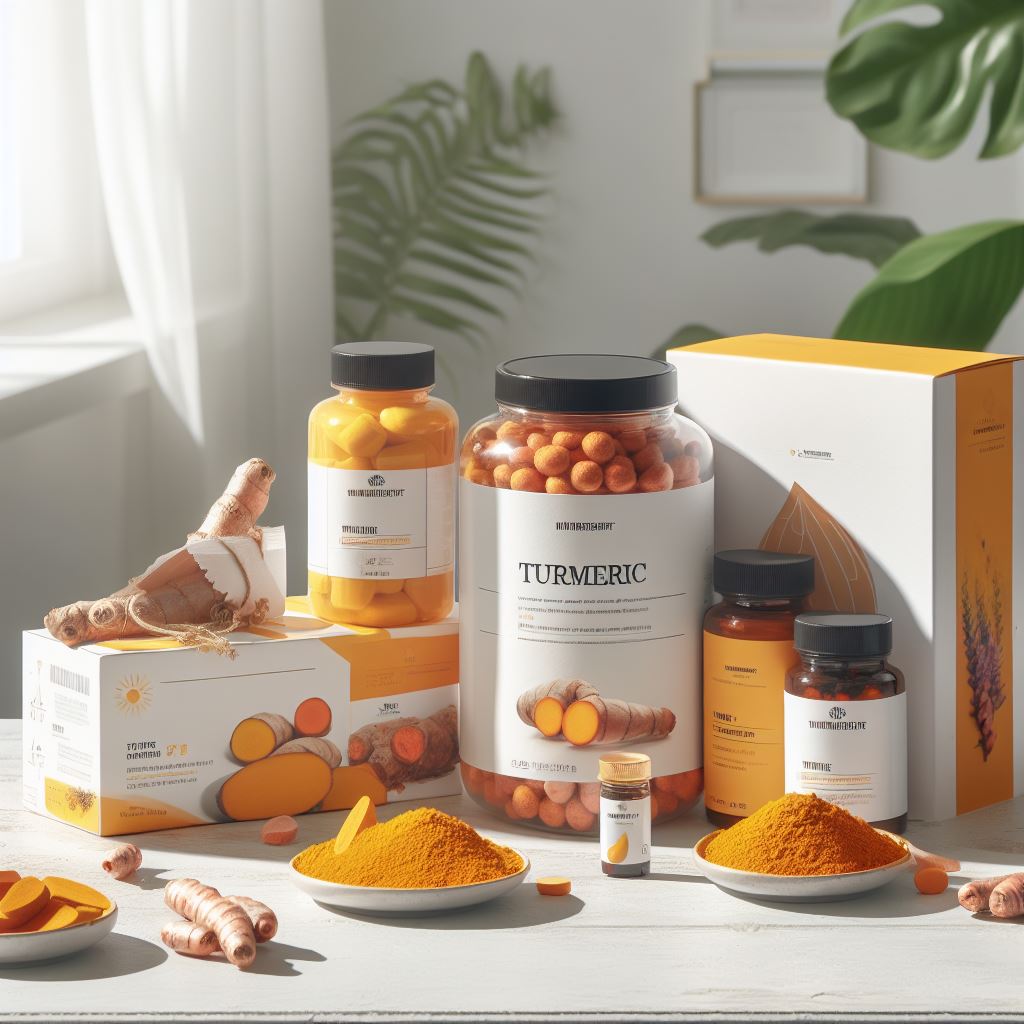
The health benefits described earlier in hundreds of scientific and technical papers and clinical trials were obtained using 95% standardized curcumin (curcuminoids) found commercially in supplements in the form of capsules or tablets.
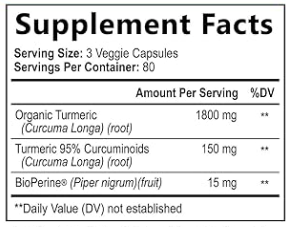
Besides containing higher concentrations of curcumin, when selecting a supplement form of turmeric curcumin, it is important to note that the precise quantity of curcumin is specified on the product label, in contrast to the root or powder form, where the dosage can only be approximated.
In the formulation of many turmeric curcumin supplements found in the market, you may come across several substances used to enhance its poor bioavailability, as mentioned before.
Some of these substances include:
-
- Piperine (Bioperine): This is an extract from black pepper and is commonly used in curcumin supplements to improve absorption.
-
- Lecithin: Lecithin is a fat often derived from soy or sunflower that helps increase the absorption of curcumin in the body.
-
- Phospholipids: Phospholipids are naturally occurring lipids that can be used to encapsulate curcumin, making it more bioavailable.
-
- Turmeric Oil: Some supplements include turmeric oil, which naturally contains turmerones, compounds that enhance curcumin absorption.
-
- Nanoparticles: Curcumin nanoparticles are formulated to improve its solubility and absorption.
-
- Microencapsulation: Curcumin can be microencapsulated within liposomes or micelles to protect it and enhance its bioavailability.
-
- Emulsions: Curcumin can be formulated in emulsions to enhance its solubility and absorption.
-
- Complex Formulations: Some supplements contain a combination of curcumin with other natural compounds like quercetin, resveratrol, or green tea extract to further enhance its bioavailability.
These substances are often added to curcumin supplements to ensure that a more significant amount of curcumin is absorbed in the body, as curcumin alone has relatively low bioavailability.
In summary, the form of turmeric one chooses to take may depend on their individual needs and goals.
Both the root/powdered form and supplement form of turmeric offer health benefits and can be beneficial for different individuals or conditions.
It’s always a good idea to talk to a healthcare provider before starting any new supplement regimen.
Dosage – How much Turmeric Curcumin should I take? Is there any recommended dosage ?
Turmeric curcumin has not yet attained the status of a pharmaceutical drug, even though a substantial body of research, including numerous studies and clinical trials, has demonstrated its potential health benefits for a variety of diseases.
Consequently, prescribing specific dosages for individuals remains a challenging task.

In this context, a prudent approach would be to consider the average doses employed in these research studies and clinical trials as informative reference points or guidelines.
However, it’s important to emphasize that these doses may not be universally suitable for everyone, as individual responses to curcumin can vary.
Therefore, adhering to a more conservative or cautious dosing strategy is recommended to ensure safety and minimize the risk of adverse effects.
In terms of curcumin, studies have shown that the tolerability is quite high.
A big mistake people often make is considering a spice like Turmeric Curcumin completely safe to everyone in any condition.
It is not! Even being natural, It is still a substance being absorbed by your body.
Consult your doctor before taking turmeric curcumin supplements, as they may have some side effects or interactions with other medications. People with some health conditions also cannot take turmeric curcumin.
We will discuss this in the Section below.
Usage Of Turmeric Curcumin If You Are Not Diagnosed
If you are not diagnosed with any disease and are interested in pursuing a preventive approach to a healthier lifestyle through herbal medicine, the root and powder forms of turmeric curcumin seem to be the most appropriate.
These are the forms commonly used in Asia and India, where some health issues are far less compared to the West due to the turmeric consumption.

As a good reference for continuous usage of turmeric, the daily average consumption of turmeric in India is around 2.9g ( 2,900mg).
When consuming turmeric as raw/root or ground powder it is very important to notice that the average amount of curcurmin ( the most active compound) is only about 2 to 5% of the total weight of the root or powder.
For example, taking a tablespoon with in average 20g of turmeric powder as in the picture below, it will contain something around 0.4g to 1g ( 400mg to 1000mg).
For turmeric roots you will do the same math after weighting some amount of the roots.
As a reference , a common standard for many curcumin supplements is around 500 mg of curcumin per capsule.
Turmeric curcumin in the form of supplements is another very practical way to maintain your daily preventive intake of turmeric curcumin.
Turmeric curcumin supplements offer a precise dosing for therapeutic use, as their curcumin content is standardized, as we will see later in more detail.
For preventive purposes, a good starting dose of curcumin is 250 milligrams per day. You can increase the dose gradually to 500 milligrams to 1000 milligrams per day, as tolerated.
Usage for Those with a Diagnosed Illness
As mentioned before, there is no established right dosage of curcumin for everyone in particular and for every condition, making it difficult to establish a right dosage of a spice.
A prudent approach would be to consider the average doses employed in the research studies and clinical trials as reference points or guidelines.
According to the most up-to-date scientific evidence available on the internet, the dosage range used in clinical trials evaluating anti-inflammatory and antioxidant effects of curcumin in a variety of conditions is 200mg to 8g per day, with treatment durations of up to 8 months ( most common between 500- 2000 mg per day).
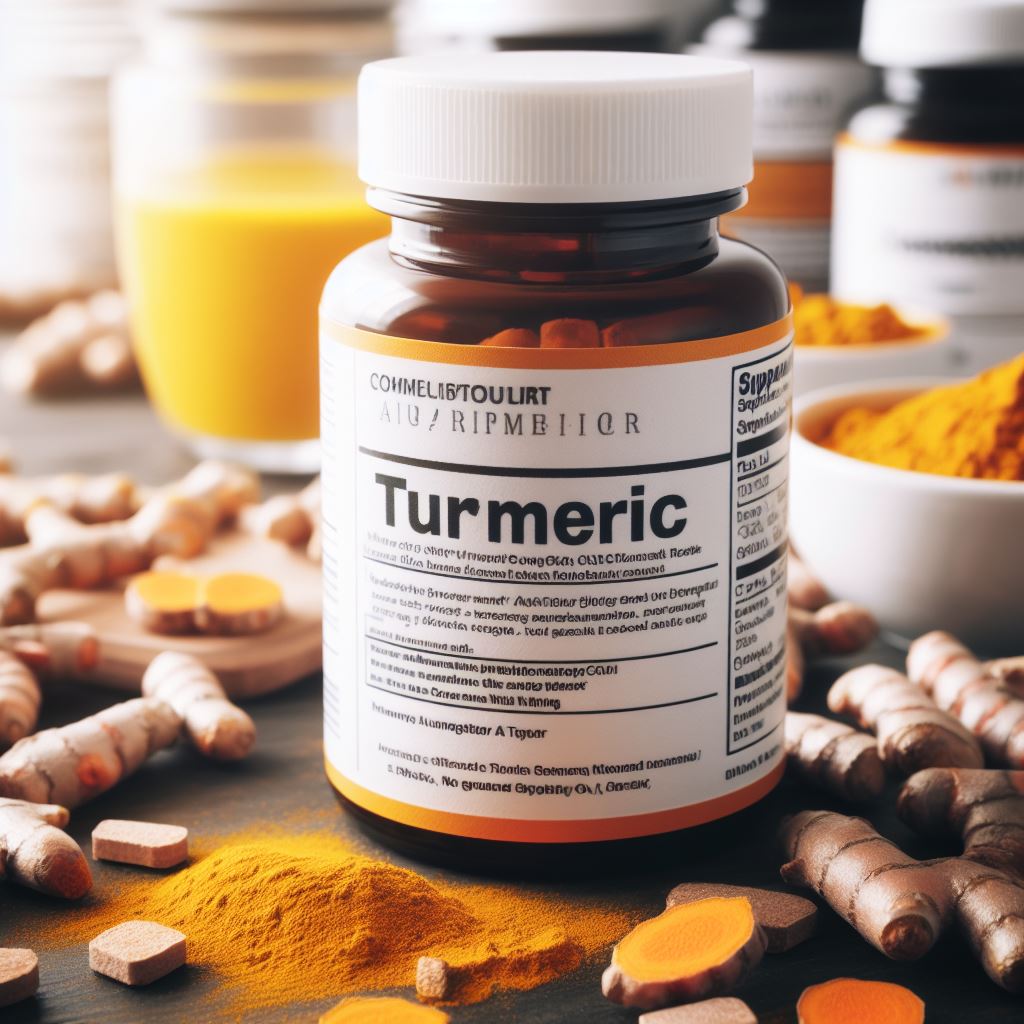
While clinical human trials have shown that doses as high as 8 grams of curcumin are non-toxic, it is not suggested that these high doses should be used as long-term solutions over extended periods of time as there is no current data to confirm human safety or tolerance.
However, it is important to note that the optimal dosage of curcumin may vary depending on the individual’s condition and the desired outcome.
There are no definitive statistics on effective doses of curcumin or turmeric, but the results of some researches:
-
- A study published in the journal Clinical Cancer Research found that people who consumed 8 grams of curcumin per day for 3 months had a significant improvement in tumor response and progression-free survival rates.
-
- A study published in the journal Neurology found that people who consumed 2 grams of curcumin per day for 18 months had a significant improvement in cognitive function and memory.
-
- High cholesterol: 700 mg of turmeric extract twice daily for 3 months
-
- Arthritis or osteoarthritis: 500mg of turmeric extract twice daily for 2-3 months
-
- Irritable or itchy skin: 500mg of turmeric three times daily for 2 months.
It is also important to note that curcumin is generally safe for most people to consume in moderation.
However, it can interact with certain medications, such as blood thinners and NSAIDs- more on side effects later.
Therefore, it is always best to talk to your doctor before taking curcumin, especially if you are taking any other medications.
If you are considering taking curcumin supplements, it is a good idea to start with a low dose, such as 250mg per day, and increase gradually to 500mg to 1000mg per day, as tolerated.
Consider standardized turmeric curcumin supplement to ensure that you are getting a consistent amount of curcumin each day.
All benefits published in hundreds of scientific and technical papers and clinical trials and mentioned in this post , were obtained using the extract form of curcumin (95% standardized curcumin).
Many suppliers of supplements in the market offer this extract form in their products. We will see more on this later in the How To Buy Turmeric section.
Side Effects, Interactions ,and who should avoid taking Turmeric Curcumin?
Side Effects
The amazing thing about turmeric is that it has virtually no side effects.
There’s been no deaths, no serious side effects.
Maybe some slight digestive problems if you have too much, but even at high doses, there’s no major serious side effects like there are with medications.
Turmeric Curcumin is tolerated in a range of dosing, but the side effects that people are reported are minor.
When it comes to side effects, curcumin can cause GI issues like abdominal pain, nausea, diarrhea, which should get better if you take it with meals.
But most of these have gone away once people have stopped using it.
Interaction with medications
Curcumin also has several important interactions.
You have to be careful if you’re taking it with blood thinners and antiplatelet medications like Aspirin and Plavix.
You also have to be careful when taking it with Warfarin or other blood thinners like Eliquis or Xarelto as it may increase your risk of bleeding.
Curcumin can also interact with certain diabetes medications and cause hypoglycemia or low blood sugars, and since curcumin has a lowering effect on blood pressure, you have to be careful if you’re taking it with other blood pressure medications.
Who should avoid taking Turmeric Curcumin
Curcumin is not recommended in people suffering from kidney stones or gallstones, and avoid it in pregnancy or breastfeeding as there are no reliable studies on the effects of curcumin in that population.
Curcumin can increase your stomach acids and it can worsen your gastrous vegetal reflux.
Finally, if you suffer from iron deficiency you should also avoid taking Turmeric Curcumin.
When can I expect to see changes?
Curcumin begins to work almost immediately after consumption by improving your overall health or to temporarily alleviate pain and discomfort.
However, depending on the specific concern, times may vary when looking for relief.
Consistency is key when tackling longer-term issues, with chronic inflammation, arthritis or joint issues taking around 2-4 weeks before improvements are felt.
Effectiveness may also be impacted by:
-
- Age
-
- Body mass
-
- Other medications
-
- Activity level
-
- Condition severity
-
- How supplements are consumed (e.g., are they taken alongside other supplements or complementary foods).


